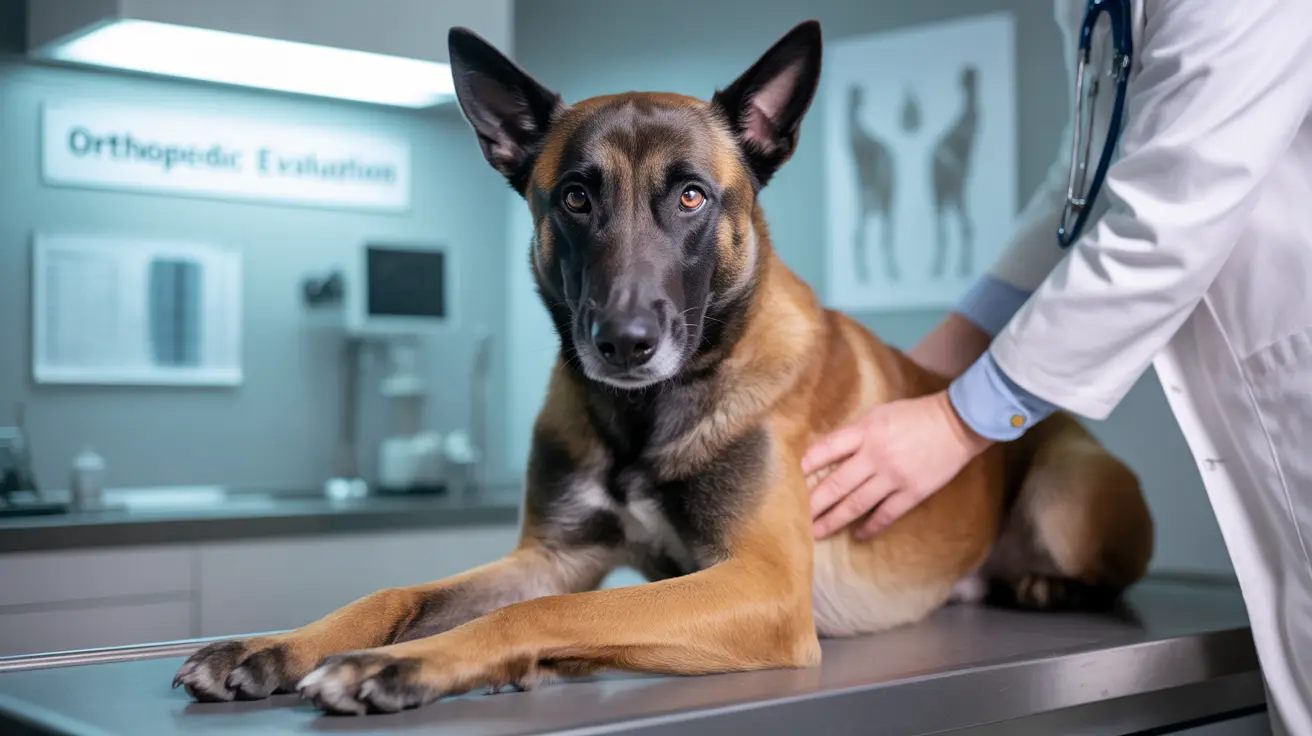The Belgian Malinois, renowned for its intelligence and versatility in police and military work, faces several health challenges that every owner should understand. While these athletic dogs are generally robust, being aware of potential health issues can help ensure early detection and proper management, leading to a longer, healthier life.
In this comprehensive guide, we'll explore the most common health concerns affecting Belgian Malinois, from orthopedic conditions to genetic disorders, and provide essential information for both current and prospective owners.
Common Orthopedic Conditions in Belgian Malinois
Orthopedic issues are among the most prevalent health challenges facing the breed. Hip and elbow dysplasia can significantly impact a Malinois's quality of life if not properly managed.
Hip Dysplasia
This hereditary condition occurs when the hip joint doesn't develop properly, leading to arthritis and mobility issues. Early signs include difficulty rising, reluctance to exercise, and an altered gait. Regular exercise management and maintaining a healthy weight are crucial preventive measures.
Elbow Dysplasia
Similar to hip dysplasia, elbow dysplasia affects the front limbs and can cause significant discomfort. Treatment options range from conservative management with medications and physical therapy to surgical intervention in severe cases.
Genetic and Neurological Disorders
Belgian Malinois can inherit several serious neurological conditions that owners should be aware of and screen for when choosing a puppy.
Spongy Degeneration with Cerebellar Ataxia
This devastating condition affects young puppies, causing coordination problems and eventual neurological deterioration. Genetic testing of breeding pairs is essential to prevent this condition.
Eye Health Concerns
Vision problems can significantly impact a Malinois's ability to work and function normally. Regular eye examinations are crucial for early detection and management.
Progressive Retinal Atrophy (PRA)
This inherited condition leads to gradual vision loss and eventual blindness. While there's no cure, early detection can help owners prepare for their dog's changing needs.
Managing Endocrine and Metabolic Issues
Hormonal imbalances can affect Belgian Malinois at various life stages. Regular veterinary check-ups can help identify these conditions early.
Hypothyroidism
This common endocrine disorder affects metabolism and can cause weight gain, lethargy, and coat problems. Fortunately, it's manageable with proper medication and monitoring.
Preventive Care and Management
Proactive health management is essential for maintaining a Belgian Malinois's wellbeing. Regular exercise, appropriate nutrition, and routine veterinary care can help prevent or minimize many health issues.
Frequently Asked Questions
What are the common signs and symptoms of hip dysplasia in Belgian Malinois?
Common signs include limping, difficulty getting up, reluctance to climb stairs or jump, and decreased activity levels. You may also notice your dog bunny-hopping when running or showing signs of pain after exercise.
How can I prevent or manage elbow dysplasia in my Belgian Malinois?
Prevention starts with choosing puppies from health-tested parents. Management includes maintaining a healthy weight, controlled exercise, joint supplements, and working closely with your veterinarian to develop an appropriate treatment plan.
What hereditary eye conditions should Belgian Malinois owners watch for and how are they treated?
The main concerns are cataracts and progressive retinal atrophy (PRA). Regular veterinary eye examinations can detect these conditions early. Cataracts may be treated surgically, while PRA management focuses on adapting to vision loss.
Which neurological disorders are Belgian Malinois prone to, and what are their typical symptoms?
Key neurological concerns include cerebellar ataxia and epilepsy. Symptoms may include poor coordination, unusual movements, seizures, and behavioral changes. Early veterinary intervention is crucial for management.
How does hypothyroidism affect Belgian Malinois, and what treatments are available?
Hypothyroidism typically causes lethargy, weight gain, coat problems, and cold intolerance. Treatment involves daily thyroid hormone replacement medication, which usually manages the condition effectively when properly monitored.
Understanding and monitoring for these health issues can help ensure your Belgian Malinois leads a long, healthy life. Regular veterinary check-ups, appropriate preventive care, and prompt attention to any concerning symptoms are key to maintaining your dog's wellbeing.






